Welcoming a new puppy into your home is a joyful and exciting experience. However, proper care and preparation are essential to ensure your puppy grows into a healthy and well-behaved companion. This comprehensive guide covers everything you need to know about caring for your furry friend, from creating a safe environment to training and healthcare.
🛏️ Preparing Your Home for a Puppy
Before your puppy arrives, it’s crucial to make your home a safe and welcoming place.
Essential Puppy Supplies
Ensure you have the following items ready:
- 🛏️ Comfortable Bed: A cozy spot for your puppy to rest.
- 💦 Food and Water Bowls: Preferably stainless steel or ceramic.
- 🍲 Puppy Food: High-quality, breed-specific nutrition.
- 🐶 Collar and Leash: For identification and outdoor walks.
- 💟 Toys: Chew toys to soothe teething and promote playtime.
- 🔒 Crate: Ideal for training and providing a secure place.
- 🛏️ Puppy Pads: Useful for house-training.
Puppy-Proofing Your Space
Keep your puppy safe by:
- Removing electrical cords and small objects.
- Storing household cleaners and medications securely.
- Blocking access to unsafe areas with baby gates.
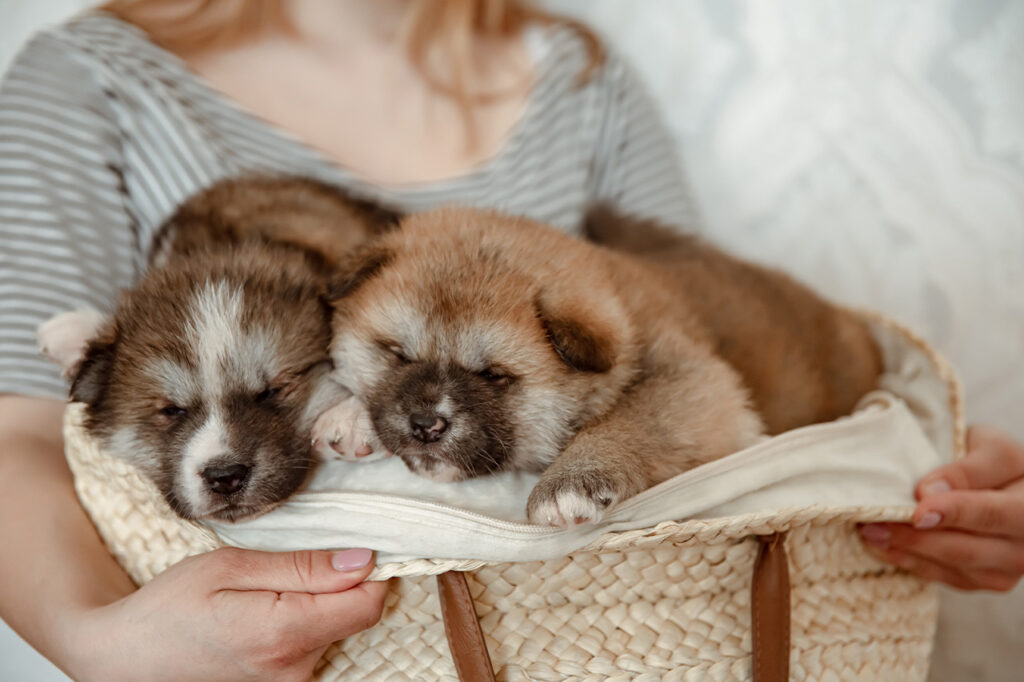
💙 First Days with Your Puppy
The first few days are crucial for setting routines and building trust.
Establishing a Routine
Consistency is key to helping your puppy adapt:
- Feeding Schedule: Regular meals at the same time each day.
- Potty Breaks: Frequent trips outside, especially after eating and sleeping.
- Sleeping Area: Designate a quiet, comfortable space for rest.
Socializing Your Puppy
Early socialization is essential for a well-adjusted dog:
- Introduce new sounds, sights, and people gradually.
- Arrange safe playdates with other vaccinated dogs.
- Take your puppy on short trips to expose them to new environments.
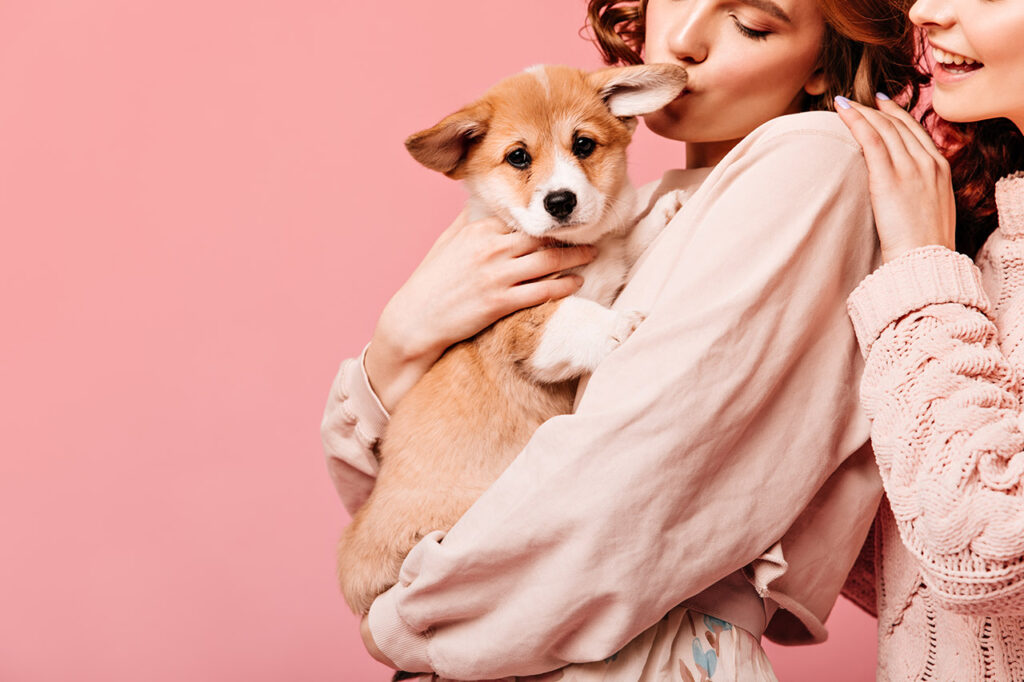
🍽️ Feeding and Nutrition
Proper nutrition is vital for your puppy’s growth and health.
Choosing the Right Puppy Food
Select high-quality food that meets your puppy’s developmental needs:
- Puppy-Specific Formula: Balanced nutrition for growing dogs.
- Avoid Fillers: No artificial preservatives or by-products.
- Breed Considerations: Small and large breeds have different dietary needs.
Feeding Schedule by Age
- 8-12 Weeks: 4 meals per day.
- 3-6 Months: 3 meals per day.
- 6-12 Months: 2 meals per day.
Always provide fresh water and consult your vet for personalized advice.
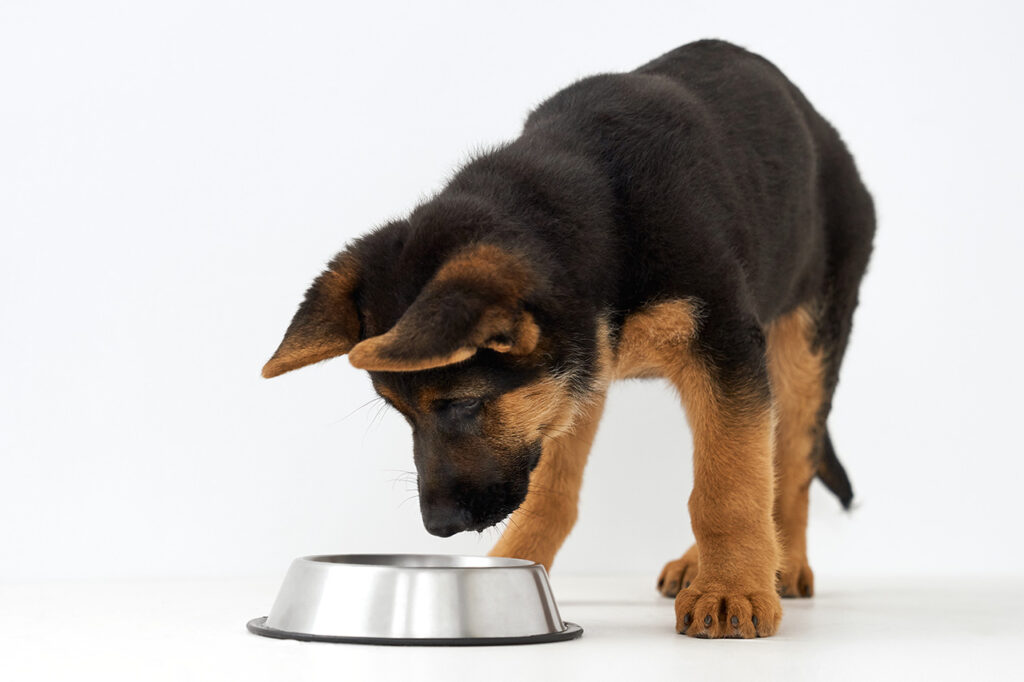
💉 Health Care and Veterinary Visits
Regular veterinary care is crucial for a healthy puppy.
Vaccination Schedule
Vaccines protect your puppy from serious diseases:
- 6-8 Weeks: First vaccinations (distemper, parvovirus).
- 10-12 Weeks: Booster shots.
- 14-16 Weeks: Rabies vaccination.
Parasite Prevention
Protect your puppy from fleas, ticks, and worms:
- Administer monthly flea and tick preventatives.
- Follow your vet’s schedule for deworming.

🏋🏻♂️ Training Your Puppy
Effective training helps build a strong bond and a well-behaved dog.
House Training
Teach your puppy where and when to relieve themselves:
- Take them outside frequently (after meals and naps).
- Reward successful potty breaks with praise or treats.
Basic Commands
Start with these essential commands:
- Sit: Helps with patience and discipline.
- Stay: Keeps your puppy in place when needed.
- Come: Ensures they return to you on command.
Crate Training
A crate provides a secure place and helps with house training:
- Introduce the crate gradually with positive reinforcement.
- Use the crate for short periods while you’re away.
🐾 Grooming Essentials
Regular grooming keeps your puppy clean and healthy.
Bathing and Brushing
- Bathing: Use puppy-safe shampoo and bathe as needed.
- Brushing: Regular brushing prevents matting and shedding.
Nail Trimming
Trim nails every 3-4 weeks to prevent discomfort and injury.
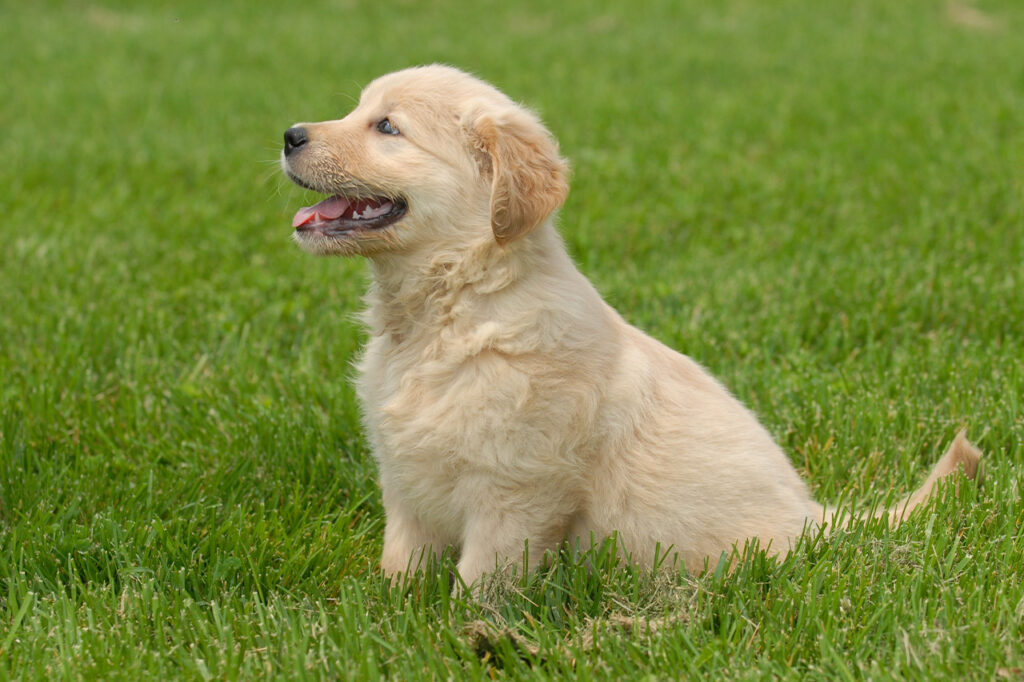
🛣️ Exercise and Playtime
Puppies need daily exercise for physical and mental stimulation.
Age-Appropriate Activities
- 8-12 Weeks: Short play sessions indoors.
- 3-6 Months: Walks and light training.
- 6-12 Months: Longer walks and interactive play.
Mental Stimulation
Engage your puppy’s mind with:
- Puzzle toys.
- Obedience training.
- New environments and social experiences.
📈 Monitoring Your Puppy’s Development
Track your puppy’s milestones to ensure they are growing healthily.
Signs of Healthy Development
- Consistent weight gain.
- Energetic and playful demeanor.
- Shiny coat and clear eyes.
When to Contact a Vet
- Loss of appetite.
- Lethargy or unusual behavior.
- Persistent vomiting or diarrhea.
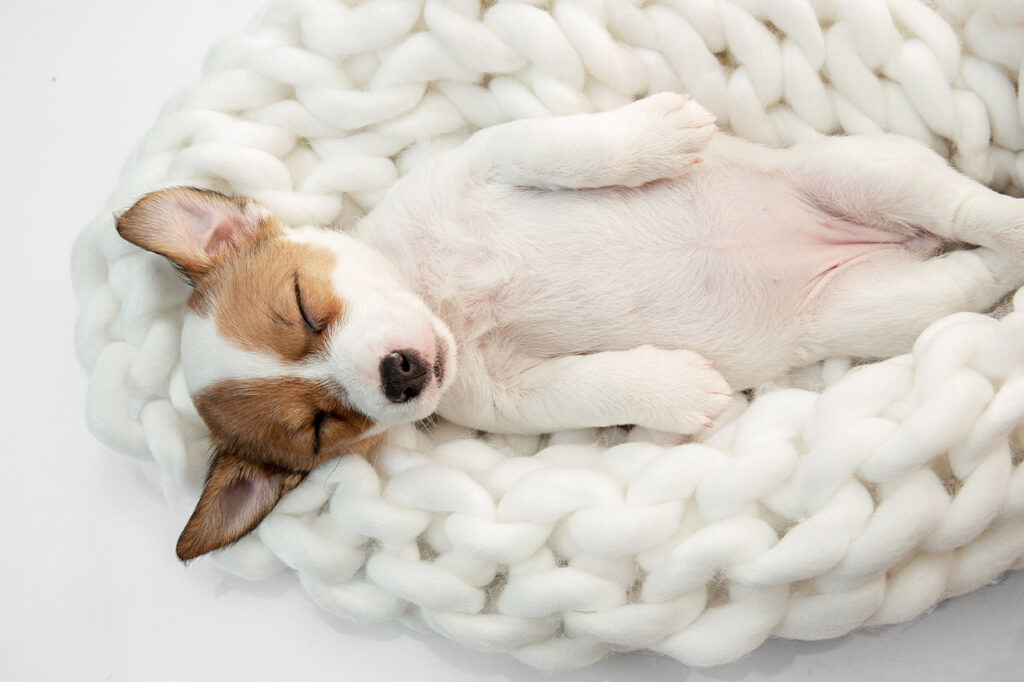
📢 Final Tips for Happy Puppy Parenting
- Be Patient: Puppies require time to learn and adapt.
- Stay Consistent: Routine and repetition reinforce good behavior.
- Show Love: Positive reinforcement strengthens your bond.
By following this guide, you’ll set your puppy up for a lifetime of happiness and health!
Enjoyed this post? Visit timmypets.com for more pet care tips, stories, and expert advice. Follow us on social media to stay connected and never miss an update!


